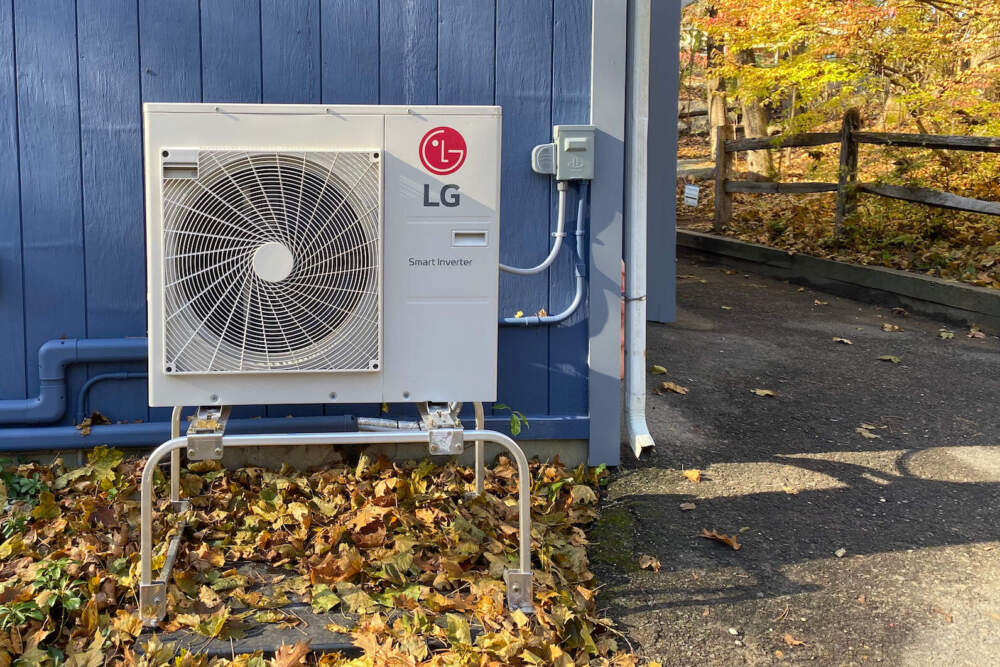Advertisement
Mass. joins 8 states in setting new electric heat pump goals

For Massachusetts to meet its clean energy and climate goals, residents across the state are going to need to make some big changes in how they heat their homes in the coming years. Specifically, the state needs hundreds of thousands of homeowners and renters to ditch their fossil fuel-based heating systems for electric heat pumps — something government officials and environmentalists acknowledge won’t be easy or cheap.
But Massachusetts is not alone in this challenge. And now, a coalition of nine states is banding together to encourage the rapid “electrification” of buildings.
In an agreement announced Wednesday, the participating states — Massachusetts, California, Colorado, Maine, Maryland, New Jersey, New York, Oregon and Rhode Island — are aiming to have 65% of all new residential HVAC and hot water heating systems be electric heat pumps by 2030. By 2040, that goal rises to 90% of all new systems.
For context, about 25% of current home heating equipment sales across these states are heat pumps, said Emily Levin, senior policy advisor at the Northeast States for Coordinated Air Use Management, an association of air quality departments that spearheaded the new effort.
While the goals represent “a significant increase [in sales], we've done a lot of modeling and we think it's in line with what is doable and possible,” she added.
Heat pumps use electricity to provide heating and cooling — think of them like an air conditioning unit that can also work in reverse. They’re not a new technology, but the development of systems that work well in cold weather has enabled states like Massachusetts to make them a central part of their climate plans.
Even though more than half of New England’s electricity comes from burning fossil fuels — primarily natural gas — electric heat pumps are more efficient than natural gas furnaces, meaning using one to heat your home results in fewer carbon emissions. And as the region adds more renewables to the grid, the climate benefits of heat pumps will only increase.
Beyond cutting statewide emissions, replacing fossil fuel based-systems with heat pumps will also have significant health benefits for residents, Levin said. Her group estimates that existing heating systems across the nine states emit over 138,000 tons of nitrogen oxides and 6,000 tons of fine particulate matter, two types of air pollution that are known to cause adverse health outcomes. Running a heat pump, by contrast, involves no on-site combustion, leading to better indoor air quality for residents.
Wednesday’s announcement builds on a commitment several states made in September to quadruple heat pump installations by 2030. By formalizing the promise in writing, states are hoping to send a strong market signal to heat pump manufacturers and installers that they are “all in” on this technology and will help facilitate its widespread deployment.
While the short-term goal is to get manufacturers to invest in heat pump production to match the demand states hope to create, Levin said a longer term goal is to help bring down the cost of purchasing and installing the equipment.
Massachusetts already incentivizes heat pump installations through its energy efficiency program, Mass Save, and residents can also take advantage of generous federal tax credits established under the 2022 Inflation Reduction Act. Still, the upfront cost of making the switch can be a daunting challenge for many homeowners.
State officials told WBUR in an email that the memorandum of understanding is in line with the state’s clean energy and climate plan and they hope that by partnering with other states, they can find ways to accelerate the heat pump transition.
“Working with other states on the transition to zero-emission buildings will not only advance our work, but also will build on our longstanding collaboration to address climate change, reduce air pollution, improve public health, and promote sustainability,” Rebecca Tepper, the state’s secretary of energy and environmental affairs, said in a statement.
There are about 2.6 million homes in Massachusetts, and approximately 80% use fossil fuels for heating. Statewide, buildings generate about 35% of Massachusetts' overall annual emissions, making them the second-biggest source of planet-warming pollution after the transportation sector.
The state’s climate plan calls for electrifying 26% of households by 2025 and 38% by 2030. This translates to about 100,000 heat pumps installed by 2025 and 500,000 by 2030. In a report released late last year, a state analysis found that Massachusetts is on track to meet the 2025 goal, but will need to significantly ramp up heat pump adoption to meet the 2030 goal.
New preliminary data from Mass Save show that sales do appear to be trending upward. Between 2019 and 2022, residents claimed rebates for installing heat pumps in 23,585 homes. By contrast, heat pump rebate records indicate that systems were installed in over 25,000 homes last year alone.
The state is hoping this trajectory continues and that total installations reach 62,000 in 2030.
